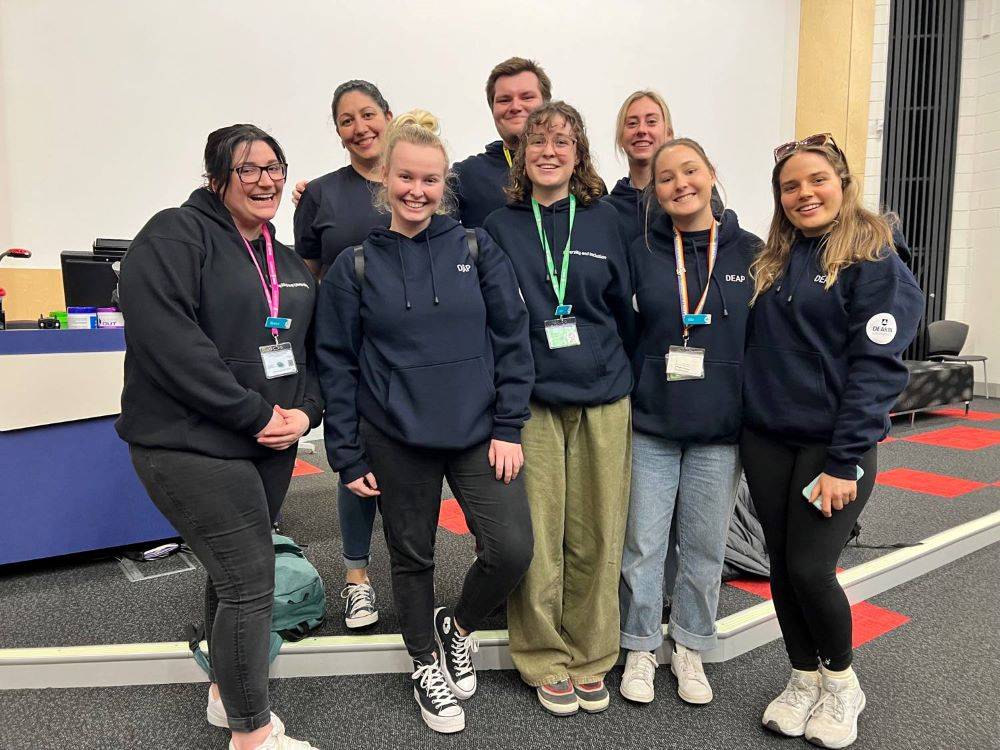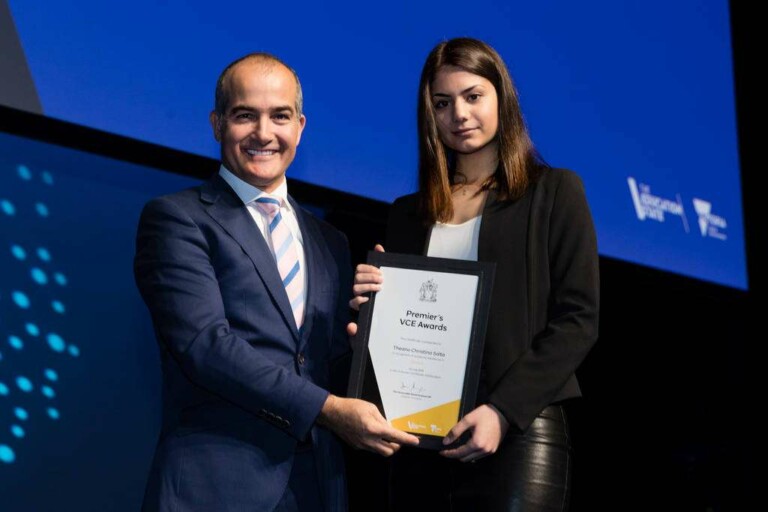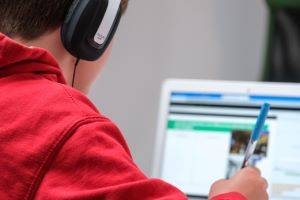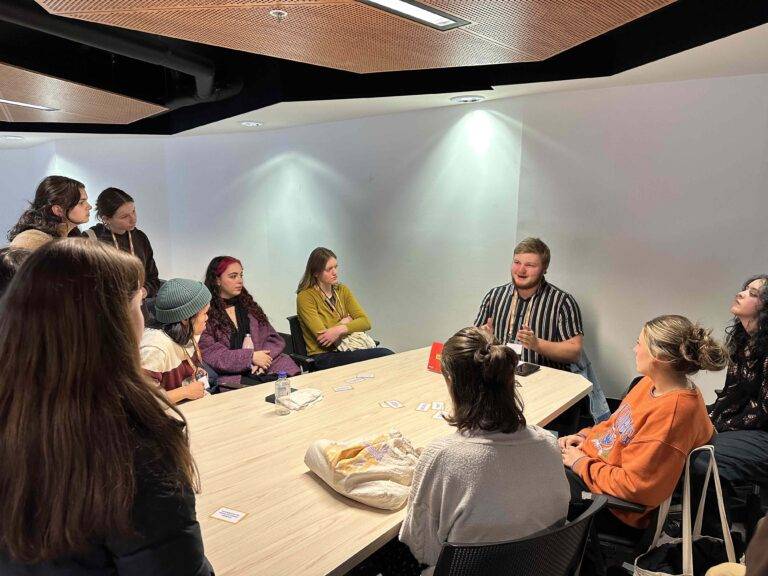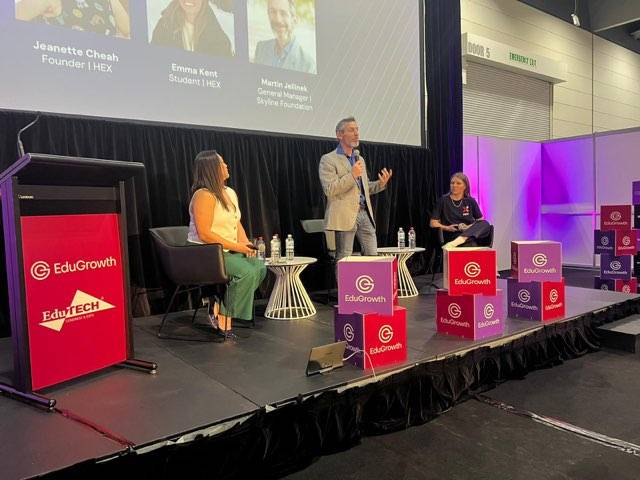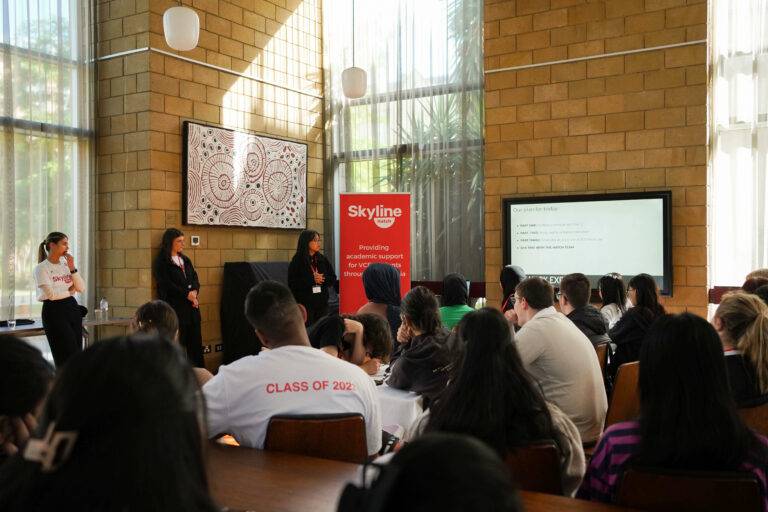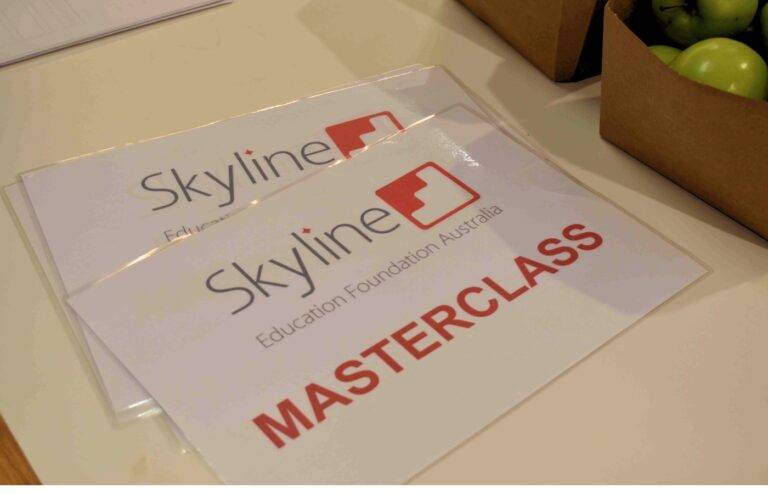Skyline’s Got Your Back
– Dr Elizabeth Hartnell-Young
Everyone needs a ‘significant other’, say psychologists. These are the people – teachers, parents, peers, role models – whose positive influence and guidance helps in decision making about schooling, pathways into further study and employment, and all-round wellbeing. For some Skyline students, a valuable ‘other’ is hard to find.
When Woelfel and Haller (1971) set up a research project to accurately measure the influences on high school students’ aspirations and attainment, they found some surprises. After intensively interviewing 30 students, they identified and interviewed the people who they had named as models of their aspirations, or those they had talked with about aspirations: the ‘significant others’. They also looked at factors like father’s occupational level, student’s measured mental ability (IQ) and academic performance, significant other’s occupational and educational expectations, and student’s occupational and educational aspirations.
The researchers concluded that the influence of significant others was the major factor, while intellectual ability and academic performance were only slightly linked, and socio-economic status was not very important in influencing aspirations.
Skyline’s independent evaluators, Ian and Jacqui Phillips, asked the 2019 student cohort about the greatest influences on their final year of schooling. Students reported the most important factors were their own desire to succeed (75%) and their academic ability (56%). Next were ‘the support of teachers and school leaders’ (50%) and the ‘Skyline Program’ (50%), indicating that these are important significant others in our students’ lives. The final influences – support of friends and support of family – scored quite a bit lower at 44% and 31% respectively.

Another measure, the Social Return on Investment (Think Impact, 2020) found that of all the potential beneficiaries of Skyline’s work, (eg families, alumni, government), students experienced the most value (83%) with ‘stronger self-identity’ being the most highly valued outcome. It is clear that Skyline plays an important role as a ‘significant other’ for our students, influencing self-efficacy, wellbeing and knowledge of future options. As a Skyliner commented:
I know I can always rely on Skyline and don’t feel as alone in my journey. My peers and the staff have ensured I know that there are people in my corner (Phillips & Phillips, 2021).
Other research indicates that parents can be a powerful influence on their child’s education and career decisions, although this is often unrecognised by both parents themselves and policy makers. In a US study, researchers found that through career planning with a parent, Year 12 students showed ‘greater career certainty, less indecision, more career salience, and stronger ego identity’ (Cochran & Kush, 1993, p. 434).
But when jobs and courses are changing so fast, how can parents (and teachers) keep up to date? In a study conducted by the Brotherhood of St Laurence, one student confided:
Mum hasn’t been in the workforce for a long time. She doesn’t have much understanding of today’s education system, or how to get into courses of my choice. Until she has more of an understanding I am reluctant to confide in her, preferring to talk to the careers counsellor (Perkins & Peterson, 2005, p. 18).
Trusty (1998) suggests that programs giving parents access to career information are important, particularly in the case of low socio‐economic status (SES) families. A six‐year longitudinal study showed that low SES parents who were taught how to use career resources could make up for any lack of education themselves when guiding their children. He argues that this is a particularly effective way to intervene to help low SES students to achieve their education and career potential.
Gone are the days when a parent could advise on a ‘safe’ career, because even traditional career paths such as accounting, law or medicine are being disrupted by technology and machine learning or Artificial Intelligence (AI).
Skyline’s networks can open doors that even schools and parents might not be aware of, thus building confidence within families. In 2019, 44% of students agreed that ‘my family is now more optimistic about my future because I was involved in the Skyline Program’(Phillips & Phillips, 2019), and in 2020 one Skyline graduate commented:
My family/relatives may not have had many expectations regarding my abilities and potential career, but this program has really given them more hope (Phillips & Phillips, 2021).
Similarly, a parent in the Brotherhood’s program recognised the benefits of learning about possibilities that were previously unknown:
Knowing that there are lots of options out there and not stopping them from dreaming of doing things that you wouldn’t have on your list of things to do (Perkins & Peterson, 2005, p. 23).
The Foundation for Young Australians (2018), found that the three ‘future-focused’ clusters with the strongest likely growth were: The Carers, The Informers and The Technologists. And young people with paid employment alongside their education in the areas of health, professional and technical services, and information technology began working full-time hours on average 5 months faster than those without experience.
For these reasons, it’s important that parents, teachers and significant others help students to clarify their identity and aspirations, and keep up to date with changing opportunities. As a significant other, Skyline is playing a valuable role in this endeavour. A graduate has the last word:
Skyline helped me gain a stronger sense of identity. Through masterclasses and guest presentations, I was able to learn more about myself and how I could be the best version of myself. I gained a broader idea of how to achieve success rather than one fixed pathway to achieve my dreams through an ATAR. Now I see a bigger and brighter picture of how I can fulfill my dreams. A strengthened identity has improved my sense of confidence and optimism. Skyline not only provided financial support to maximise my learning, they sparked a motivation within me to strive to do my best (Phillips and Phillips, 2021).
References
- Cochran, L., & Kush, K. (1993). Enhancing a sense of agency through career planning. Journal of Counseling Psychology, 40(4), 434-439.
- Foundation for Young Australians. (2018). The New Work Reality. Retrieved from www.fya.org.au
- Perkins, D., & Peterson, C. (2005). The role of parents in career transition support. Paper presented at the Transitions and Risk: New Directions in Social Policy conference Melbourne
- Phillips, I., & Phillips, J. (2019). Skyline 2019 Evaluation Update
- Phillips, I., & Phillips, J. (2021). Skyline Education Foundation Australia Evaluation Update
- Think Impact. (2020). Growing value in uncertain times: A Social Return on Investment Evaluation of Skyline Education Foundation activities. Retrieved from https://skylinefoundation.org.au/social-return-on-investment/
- Trusty, J. (1998). Family influences on educational expectations of late adolescents. Journal of Educational Research, 91(5), 260-274.
- Woelfel, J., & Haller, A. (1971). Significant Others, The Self-Reflexive Act and the Attitude Formation Process. American Sociological Review, 36(1), 74-87. doi:10.2307/2093508

